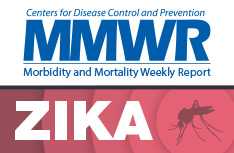Women & Their Partners Trying to Become Pregnant
What We Know
- Zika virus can be passed from a pregnant woman to her fetus.
- Zika infection during pregnancy can cause a birth defect called microcephaly and other severe fetal brain defects.
- Zika primarily spreads through infected mosquitoes. You can also get Zika through sex without a condom with someone infected by Zika, even if that person does not show symptoms of Zika.
- There is no vaccine to prevent or medicine to treat Zika.
How to Protect Yourself
CDC recommends precautions for women and their partners thinking about pregnancy.
- Check CDC’s travel website for areas with risk of Zika.
- Talk to your doctor or other healthcare provider before traveling to areas with risk of Zika and take steps to plan for travel.
- Take steps to prevent mosquito bites and prevent sexual transmission.
Consider Waiting To Get Pregnant if You Travel to or Live in an Area with Risk of Zika
If You Are Traveling to an Area With Risk of Zika
Talk with your healthcare provider about your pregnancy plans and possible Zika risk before travel. For specific recommendations related to the area where you are planning to travel, visit CDC’s Zika travel page.
| Traveling Partner | How Long to Wait |
|---|---|
| If only the male partner travels to an area with risk of Zika | The couple should consider using condoms or not having sex for at least 6 months
|
| If only the female partner travels to an area with risk of Zika | The couple should consider using condoms or not having sex for at least 2 months
|
| If both partners travel to an area with risk of Zika | The couple should consider using condoms or not having sex for at least 6 months
|
The timeframes that men and women should consider waiting are different because Zika can stay in semen longer than in other body fluids.
If You Have Ongoing Exposure (For Example, Live in or Frequently Travel) to Any Area With Risk of Zika
- Take steps to prevent mosquito bites.
- Because of your ongoing exposure to Zika, talk with your healthcare provider about your plans for pregnancy, your risk of Zika virus infection, the possible health effects of Zika virus infection on a baby, and ways to protect yourself from Zika.
- If you or your partner develop symptoms of Zika or test positive for Zika, you should follow the suggested timeframes above before trying to conceive.
Talk With Your Doctor or Other Healthcare Provider
Decisions about pregnancy planning are personal and complex, and circumstances will vary for women and their partners. Women and their partners should discuss pregnancy planning with a trusted doctor or healthcare provider. As part of preconception counseling, women and their partners who are thinking about pregnancy should talk with their doctor or healthcare provider about
- Their reproductive life plans, including pregnancy intentions and timing of pregnancy
- Their potential exposures to Zika during pregnancy
- Their partner’s potential Zika exposures
As a result of counseling with healthcare providers, some women and their partners living in areas with Zika might decide to delay pregnancy.
Related Fact Sheets
For Women in Areas with Zika: Plan Your Pregnancy
- Page last reviewed: August 30, 2017
- Page last updated: August 30, 2017
- Content source:





 ShareCompartir
ShareCompartir

